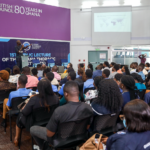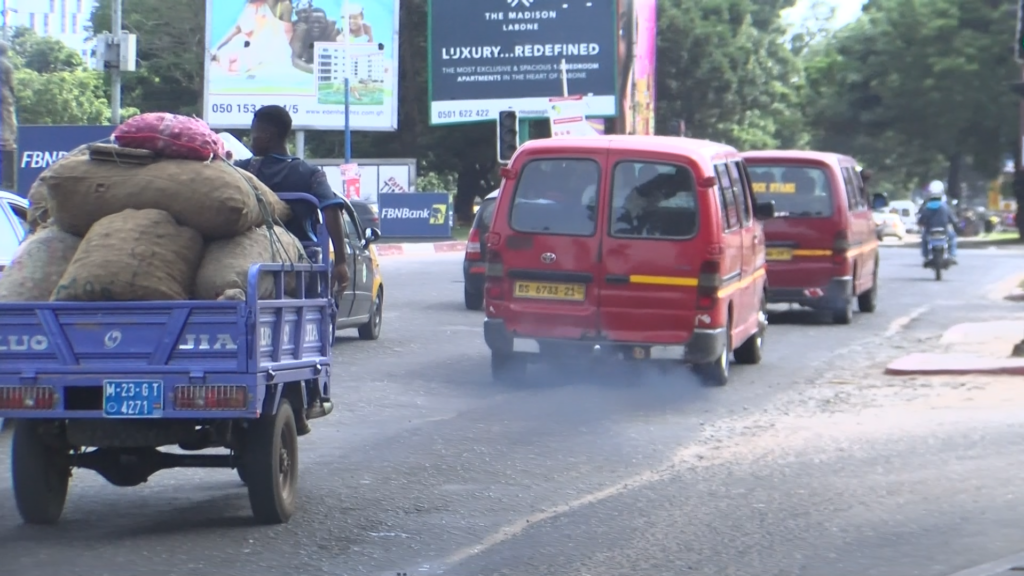General
Ghana Thoracic Society declares war on air pollution at maiden public lecture
Held at the British Council Hall in Accra under the theme “A Neglected Killer: Air Pollution and the Lung”, the event brought together pulmonologists, public health researchers, clean air advocates, and environmental scientists who are all sounding the alarm on Ghana’s worsening air quality crisis.
MyJoyOnline
published: Apr 22, 2025


“Air pollution is killing us, and we can’t even see it.”
That was the sobering message from experts as the Ghana Thoracic Society held its maiden public lecture on Wednesday, April 16 — a bold first step in what they hope becomes a nationwide movement to tackle what they call a “neglected killer.”
Held at the British Council Hall in Accra under the theme “A Neglected Killer: Air Pollution and the Lung”, the event brought together pulmonologists, public health researchers, clean air advocates, and environmental scientists who are all sounding the alarm on Ghana’s worsening air quality crisis.

For pediatric pulmonologist Dr Sandra Kwarteng Owusu, the evidence is already showing up in Ghana’s children.
Sharing findings from a recent study, she revealed a dangerous link between school commutes and respiratory health.

“We realised that for most of the children, during the time they are on their way to school… they had higher levels of exposure,” she said.
“There was one particular school where the children had a lot of exposure during the day… it had the most children who reported asthma symptoms.”
“Because it is not visible most of the time, it’s easy for us to push it to the back burner,” said Desmond Appiah, Ghana’s Country Lead for Clean Air Fund.

“But truth be told, if it is a pathway to diseases like strokes, diabetes, asthma, heart diseases… then we really have no other option but to be acting on it.”
Desmond Appiah didn’t mince words. “Air pollution can be and is causing 28,000 deaths at least in our country,” he said, calling for a clear national clean air policy.
“There are a lot of interventions that we’ve already made. But there is still a gap… What a policy does is that it helps to guide how we do everything.”
For guest speaker Professor Kofi Amegah, tackling air pollution starts with everyday decisions — from how we cook to what we drive.

“We need to find a way and transition to clean cooking solutions by using LPG and getting rid of the charcoal,” he urged.
“The high-emitting vehicles — I think we need to find a way and either get rid of them by not giving them roadworthiness, or we need to tax them heavily.”
He added, “I’m in support of taxing these vehicles heavily so that it will serve as a deterrent…We can also look at a policy whereby there could be some form of replacement for a vehicle owner so that they can pay over time.”
Also on the panel was Colonel Dr Clement Titus Laryea, Consultant Pulmonologist at the 37 Military Hospital, who added his voice to the call for decisive, coordinated action.
“This is becoming alarming. And we need to raise our voices to address this menace,” said Professor Jane Afriyie Mensah, President of the Ghana Thoracic Society.

“It is our maiden public lecture… but the society has more in store. We’ll go sector by sector, looking at the people who are most at risk of air pollution. And then we will channel our educational activities through that.”
As the lecture wrapped, it became clear that this was more than a conference — it was a rallying cry.
“We hope that as we do this, we will whip up the public support,” said Professor Mensah.
And if Wednesday’s turnout was any indication, the movement to clean Ghana’s air has just begun.
Read More